Skroutz Buyers Protection
Οι οπλαρχηγοί του ΕΔΕΣ στην Ήπειρο 1942-44, Τοπικότητα και πολιτική ένταξηCode: 3903663
- Author: Βαγγέλης Τζούκας
- Publisher: Vivliopoleion tis Estias
- Μορφή: Soft Cover
- Έτος έκδοσης: 2013
- Αριθμός σελίδων: 257
- Κωδικός ISBN-13: 9789600515824
- Διαστάσεις: 24×17
Βαγγέλης Τζούκας

Political Books
Όταν ξέσπασε η βία, Μελέτες και δοκίμια για τη δεκαετία 1940-1950
Ad from VivliodiktyoAdded
Political Books
Αφηγήσεις για τη δεκαετία του 1940, Από το λόγο του κατοχικού κράτους στη μετανεωτερική ιστοριογραφία
Ad from SilverProductsAdded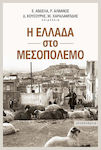





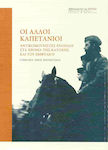
Political Books
Οι άλλοι καπετάνιοι, Αντικομουνιστές ένοπλοι στα χρόνια της Κατοχής και του Εμφυλίου
from 17,06 €Added
Political Books
Κατοχή, αντίσταση, εμφύλιος, Η Αιτωλοακαρνανία στη δεκαετία 1940-1950
from 18,55 €Added
Similar products

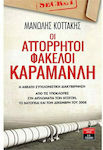 Top rated
Top ratedPolitical Books
Οι Απόρρητοι Φάκελοι Καραμανλή, The Unseen Shocking Governance
Ad from Xryso FteroAdded Top rated
Top rated
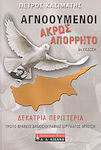
Political Books
Αγνοούμενοι: Άκρως απόρρητο, Δεκατρία περιστέρια: Οι τελευταίοι επιζώντες αγνοούμενοι της Κύπρου: Οι μυστικές αποστολές σωτηρίας τους
Ad from Xryso FteroAdded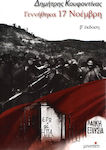

 Top rated
Top rated


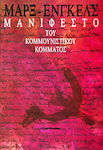
All shops
Prices are calculated for:Malta, Other Payment Options
- 8,88 €
- 9,60 €
- 8,93 €
- 9,00 €
- 9,61 €
Description
The book at hand is an edited version of the author's doctoral thesis and refers to the broader issues surrounding the history of the Greek Resistance and the Civil War that followed. In this sense, it aims to contribute to the extensive discussion about the characteristics of the armed struggle during the Occupation, which has become one of the central areas of debate in the historiography of the period.
As the title of the book suggests, its goal is to explore the processes of formation of the armed forces of EDES in the region of Epirus during the period 1942-1944. From this perspective, it aims to highlight the complex relationship between tradition and modernity in terms of the processes of formation and development of the Greek resistance movement during the Occupation. Essentially, it narrates the intricate and two-sided relationship between EDES, an urban resistance organization originating from the Venizelist camp of the Interwar period, and the traditional, locally defined, rural environment in which it was forced to develop its armed units. The processes through which armed groups supporting EDES were formed in four mountainous regions of Epirus (Xirovouni, Lakka-Souli, Radovizi, Tzoumerka) are explored. Under the leadership of military commanders, many of these groups brought their own culture - that of the armed rural environment - into the realm of multiple political and military conflicts.
Using a wealth of written and oral testimonies, as well as archival material, the work aims to highlight the complex mechanisms of political mobilization of local communities, which are based on the appropriation of traditional structures and practices by resistance organizations, and the influence of local cultural and social particularities on the perception and management of local and supralocal conflicts. On the other hand, the role of modern identities in perpetuating previous conflicts between local armed groups and the political consequences of the integration of military commanders into the organization of Napoleon Zervas are also highlighted.
Specifications
- Subtitle
- Localism and political integration
- Format
- Soft Cover
- Number of Pages
- 257
- Publication Date
- 2013
- Dimensions
- 24x17 cm
Important information
Specifications are collected from official manufacturer websites. Please verify the specifications before proceeding with your final purchase. If you notice any problem you can report it here.

















































